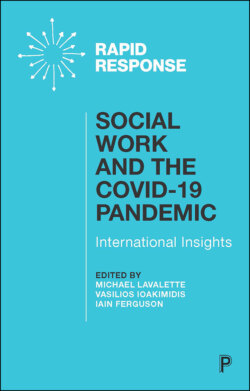Читать книгу Social Work and the COVID-19 Pandemic - Группа авторов - Страница 12
На сайте Литреса книга снята с продажи.
Epidemiological impact of COVID-19
ОглавлениеAnother important dimension highlighting the undeniable sociopolitical aspects of COVID-19 is the disease’s disproportionate epidemiological impact on Black and Minority Ethnic Communities (BAME) as well as communities experiencing deprivation (see the chapter by Choonara and Prasad in this book). The link between social inequality, ill health and poor life chances has been established for a long time (see the chapter by Humber). Researchers such as Wilkinson and Pickett (2010) have confirmed beyond doubt what generations of social workers have witnessed first-hand; it is the material circumstances that primarily shape people’s lives, wellbeing and health. For example, healthy life expectancy for males in the most deprived areas of England is 51.7 years, compared to 70.4 years in the least deprived areas (Public Health England 2019). Early figures of COVID-19-related deaths suggest that individuals in areas of economic deprivation are more likely to die as a result of the virus than those in the least deprived areas. Rates for deaths occurring between 1 March and 31 May 2020 show that in the most deprived areas of England the mortality rate for COVID-19 was 128.3 per 100,000 population, but in the least deprived areas it was just over half that at 58.8 per 100,000 (Office of National Statistics 2020).
A University of Essex recent report on the impact of COVID-19 on families with young children in Southend (O’Connell et al. 2020) demonstrated that COVID-19 had adversely and disproportionately affected the mental and emotional wellbeing of parents in some of the most deprived wards in Southend. Through a mixed-method research approach which included a survey followed up by interviews with parents, the report found that:
• Parents have experienced lowered emotional wellbeing, including an exacerbation of pre-existing mental health difficulties.
• Social isolation during lockdown has reduced individuals’ access to informal support and relationships that facilitate wellbeing.
• Relative to other areas, parents’ concerns about their own emotional wellbeing/mental health are high.
• Detection of postnatal mental health struggles may have decreased due to reduced contacts with GPs and wider family member.
These findings leave little space for misunderstanding in relation to the detrimental and disproportionate impact of COVID-19 on families and communities who have been historically failed by unequal and unjust ways of organising our societies.
